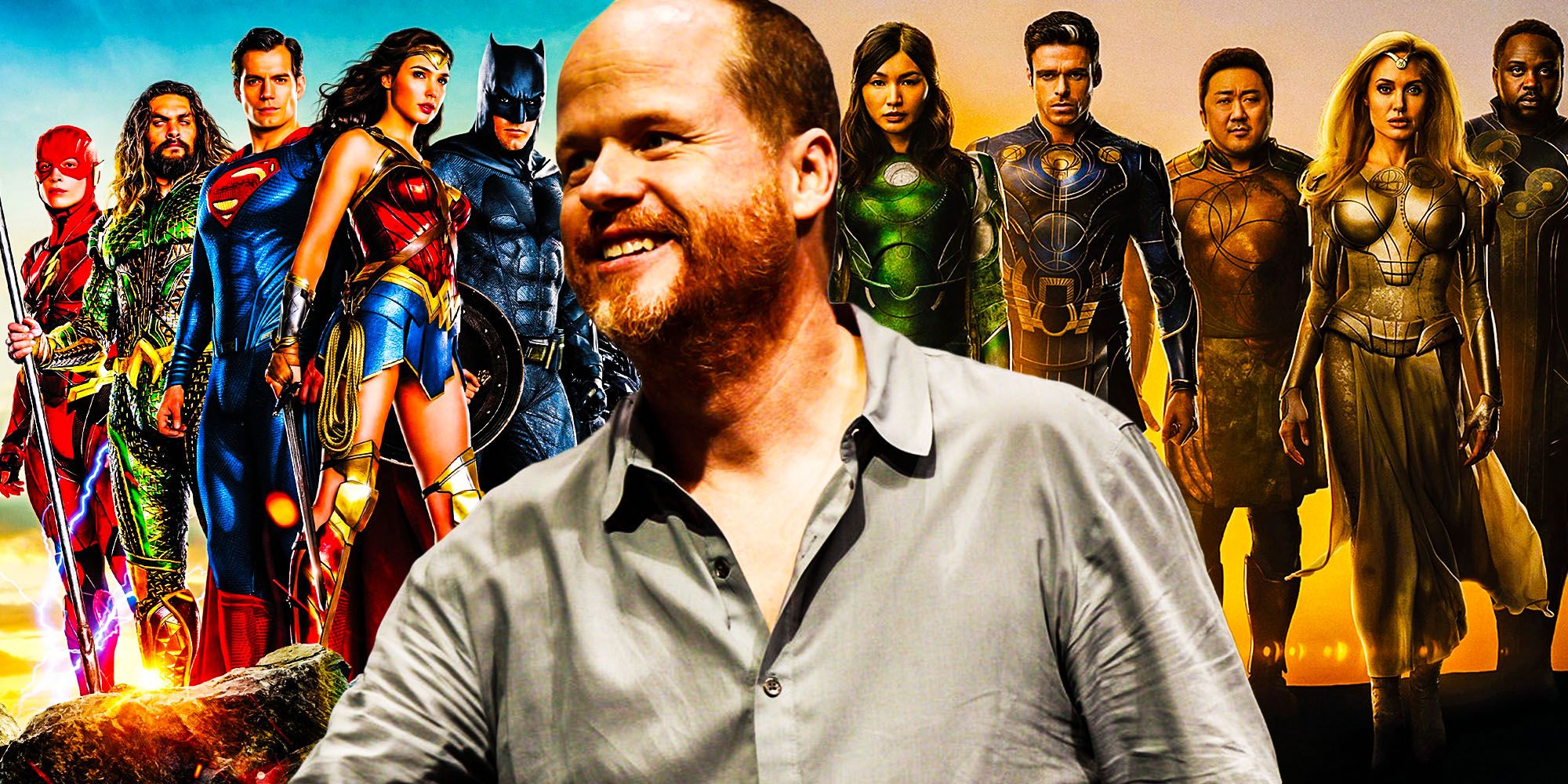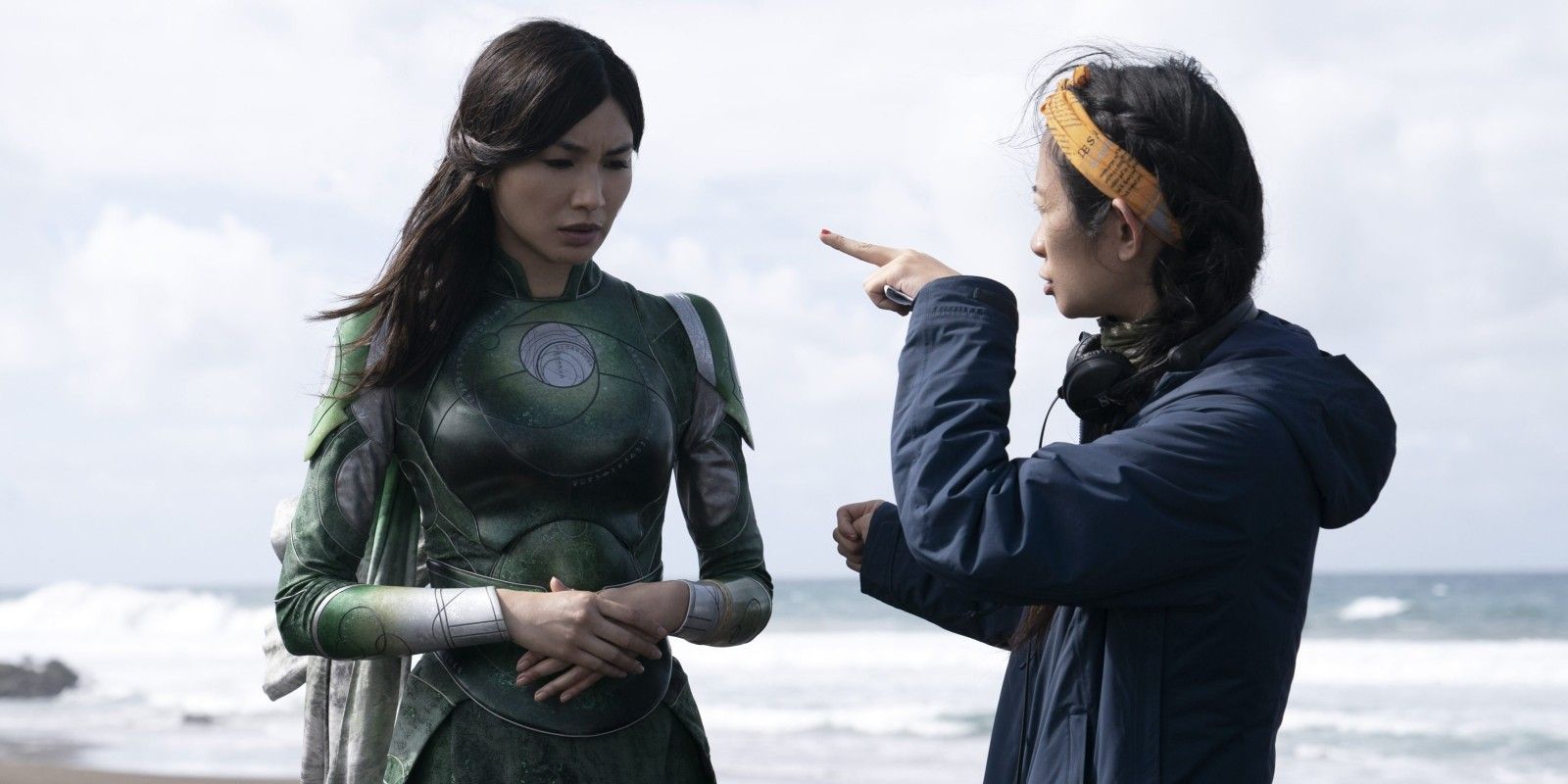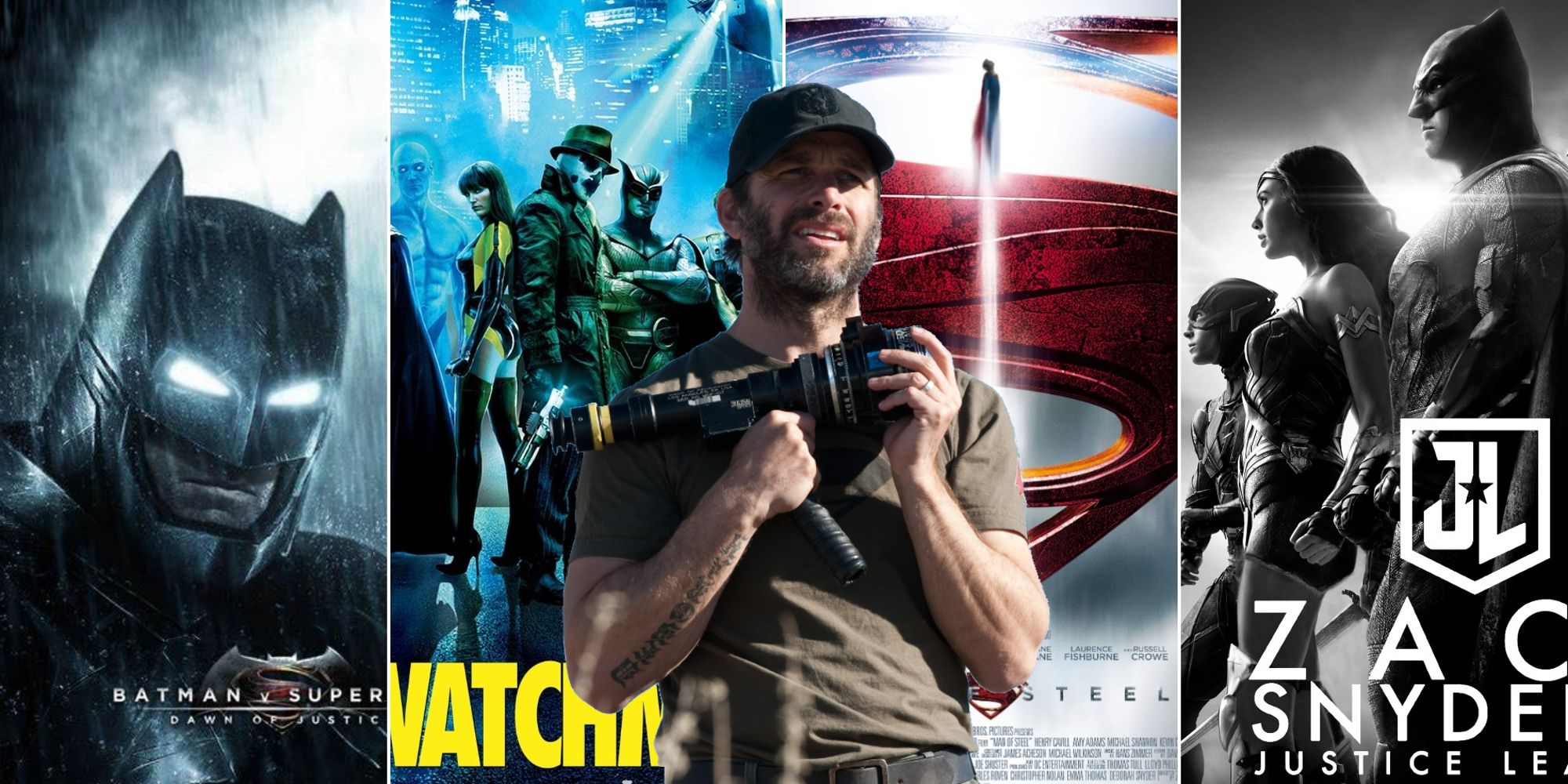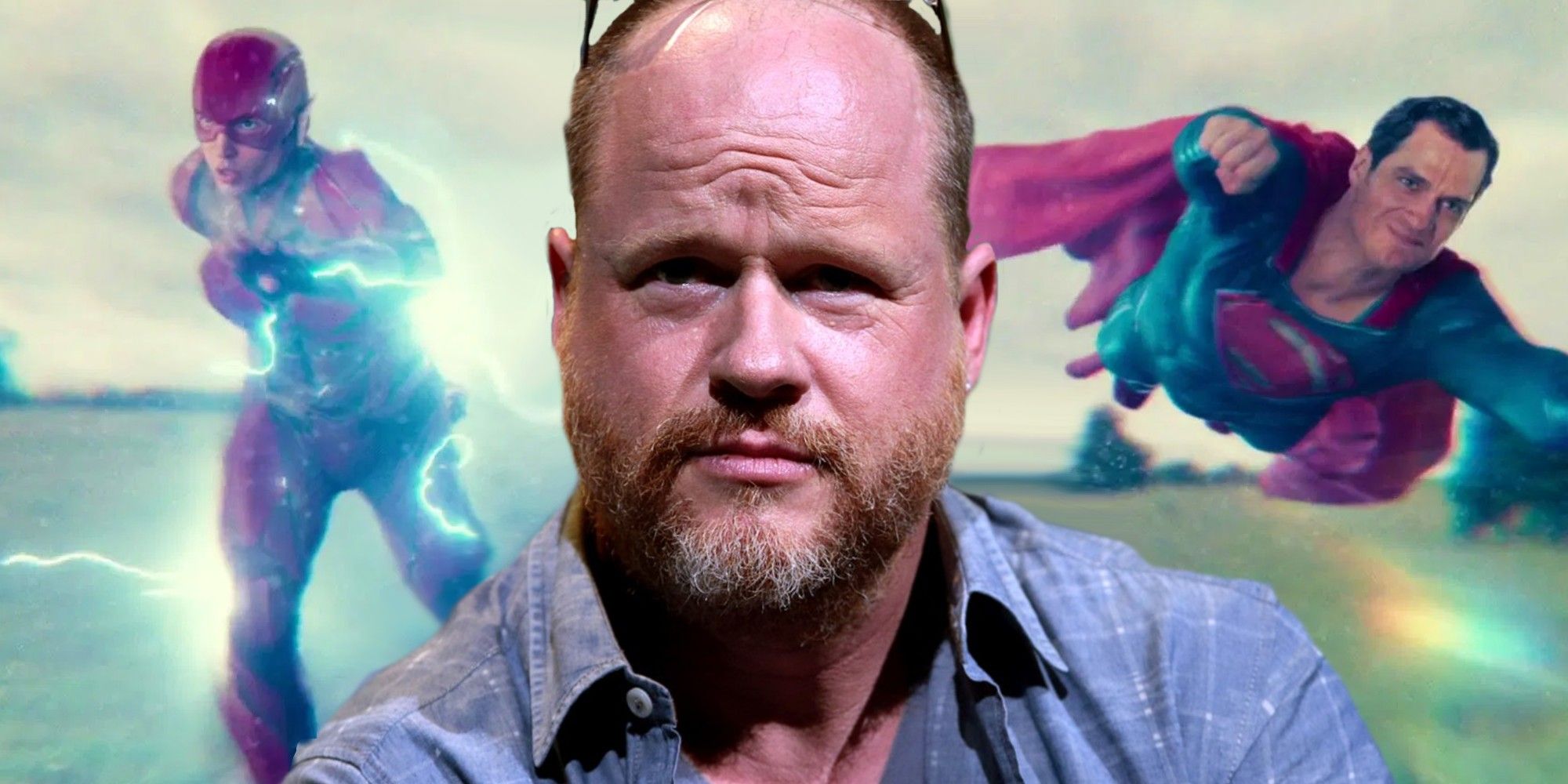
Eternals is a lot like the movie Warner Bros. wanted Joss Whedon to turn Justice League into after Zack Snyder's departure. There have been a few comparisons between Eternals and Zack Snyder's Justice League, and while there are many differences between the two movies, the comparison between the films highlights the differences between Zack Snyder's approach, the way Chloé Zhao worked with the Marvel formula, and WB's approach to rewriting and reshooting Justice League with Joss Whedon.
Zack Snyder had a vision for a 5-part Superman arc in the DCEU and after making Man of Steel and Batman v Superman: Dawn of Justice, he shot all of Justice League principal photography and completed several months of post-production before leaving the project following a family tragedy to be replaced by Whedon. After Snyder's departure, Whedon overhauled the movie in rewrites and reshoots. The resulting product was choppy, visually inconsistent, had underwhelming visual effects, and was clearly a struggle between two creative visions.
It was far too late in the process for such a radical re-envisioning of Justice League, and as history shows, the theatrical cut of the movie didn't pan out too well. However, if Warner Bros.' plan had worked, the movie they wanted to turn Zack Snyder's Justice League into may have been similar to Eternals in a lot of ways.

While Justice League was the product of multiple competing tones, aesthetics, and attitudes about superheroes, Eternals is clearly a product of Chloé Zhao, although it adheres to the Marvel process, stretching the established Marvel house style without breaking it. Zhao worked closely with Kevin Feige and others during the development process and throughout production, and Marvel also made accommodations for Zhao, allowing her to utilize more of her preferred production methods than the typical Marvel product, such as her preference to shoot in real locatios.
The result is a mostly clean marriage between Zhao and the Marvel brand. There's no jarring visual transitions or warring thematic concepts like the theatrical cut of Justice League. It's certainly a departure from the MCU style in many ways, but from the MCU title card to the consistent use of humor and ties to larger Marvel canon, Eternals bends the Marvel model without breaking it. Creative differences are common, and despite its general lack of drama, there's occasional news of behind-the-scenes clashes on Marvel projects, so who knows how Zhao and Marvel truly feel about the resulting film, but the important part is that whether or not there were any secret conflicts behind the scenes, the product that ended up on screen feels like a cohesive vision with the fingerprints of both the director and the studio clearly evident and working in tandem.
While the pairing of Zhao and the Marvel formula didn't clash on-screen, Eternals' adherence to the Marvel style prevents it from reaching its optimal potential in some moments. This is apparent early on after the opening text establishing part of the Celestial Arishem's backstory, which tonally fits in line with a number of Ridley Scott openings to films like Blade Runner, Gladiator, or Black Hawk Down, complete with the eerie opening beats of Pink Floyd's Time, only for the Marvel logo to interrupt, reminding the audience this is still a Marvel movie. Fortunately, most of these moments don't break the movie, but merely show how the style and tone may not have been pushed as far as Zhao may have if it weren't connected to the larger MCU.

Much of the MCU focuses on escapist power fantasies, with most movies showing ordinary people using their powers to become heroes to save the day and improve their lives, but Chloé Zhao and Zack Snyder diverge from this approach a bit and tend to focus more on the complications presented by those powers. Power can corrupt, powers can be a burden, being able to save people sometimes means bearing the burden of deciding who to save, and etc. This is most succinctly explained by Jonathan Kent in Batman v Superman: Dawn of Justice when he tells the story of how he helped save his farm from a flood as a child, only to learn the next day that diverting the waters resulted in a neighbors farm being wiped away. This is the same kind of moral conflict Zhao presents for the Eternals in her movie.
The Eternals are sent to Earth by their creator, the Celestial Arishem, under a plan they believe is intended to stop the Deviants from growing and wiping out the planet, but their true purpose is to help humanity evolve and grow enough for the Celestial Tiamut to be born out of the Earth's core. During their initial mission they face moral conflicts such as whether or not it's right to allow the people of Earth to kill each other in wars when Druig can stop it with a thought, or whether or not their evolution can be brought along faster with technology created by Phastos - and also the later regret he has over humanity's use of technology to build the atomic bombs used on Hiroshima and Nagasaki.
This approach is hardly new or unique for the genre, it's been present in various forms of superhero media for generations, but it's not quite the same kind of fun popcorn entertainment the MCU is known for. It also inherently impacts the movie's pacing and spectacle in moments because the Eternals face intense moral conflicts over whether or not they should act, meaning moments resolved by exciting displays of power in other movies are replaced by moody debates and moody characters trying to deal with the consequences of their actions - or inactions.
Anyone showing up to see a movie like Eternals, or any of Zack Snyder's DC movies to see thrilling, escapist adventures where the heroes are the answer to the problem don't tend to react well when the movie questions whether or not they are the problem. Which is a lot of why Snyder's superhero movies struggled with critics, and why Zhao's Eternals is the first and only MCU movie to not earn a "Fresh" score on Rotten Tomatoes, even though most people would agree it's far from the worst movie in the franchise.

The way Marvel made a studio product with an Auteur director on Eternals is much like what Warner Bros. hoped Joss Whedon could do for Zack Snyder's Justice League footage, only it was never going to work since Marvel's goal was to mostly embrace Chloé Zhao's vision, whereas WB's goal with Whedon was to erase Snyder's. So, even if Justice League's transformation had gone more smoothly, turning the film into the lighter, more escapist popcorn fun Warner Bros. wanted because it wasn't simply about brightening the tone. WB's approach to Justice League's changes violated the fundamental story and character approach of both the movie and the larger arcs already established by Snyder in previous movies. Meanwhile, the tone of Eternals may be similar to the rest of the MCU, but not at the expense of Zhao's deconstruction of the characters.
Superman's characterization in Whedon's Justice League largely got a free pass because the focus of the criticism was on poorly executed mustache removal made necessary by reshoots. But looking beyond the mocked upper lip, Cavill's entire character arc hinged on him needing to find his place in the world and understanding his purpose. Through his sacrifice in Batman v Superman: Dawn of Justice, he inspired and redeemed a fallen Batman and ended up serving as a beacon to unite the Justice League. While audiences may not have been totally on board with that set up in Man of Steel and Batman v Superman, the payoff in Zack Snyder's Justice League recontextualizes the rest of his arc, revealing he was always on the path to becoming the Superman everyone knows and loves, but he had to overcome some obstacles to get there. Justice League's theatrical cut simply brought back a smiling, happy Superman that was little more than a cardboard cutout of what the studio thought audiences wanted, failing to resolve Snyder's character arc, or fill in anything of substance to replace it.
Cutting all of that deconstruction to just reintroduce a bright and hopeful Superman shatters all the meaning in the character arc, and is largely the reason interest in the characters plummeted following the theatrical version of the movie. It would be like if Marvel had forced Zhao to introduce versions of the Eternals who already knew their place in the world and didn't have to grapple with Arishem's intentions for them or overcome opposition within their own group in order to save the world, which removes the very thing that makes characters like Sersi great at the end of the movie. Warner Bros. may have found success with that approach if they'd built the DCEU that way from the beginning, but cutting off their character arcs at the knees to introduce versions of the characters that serve as bright, escapist power fantasies was doomed from the beginning, even if Whedon's Justice League had somehow managed to achieve a more cohesive execution.
from ScreenRant - Feed https://ift.tt/3kvMwfB
via IFTTT
No comments:
Post a Comment